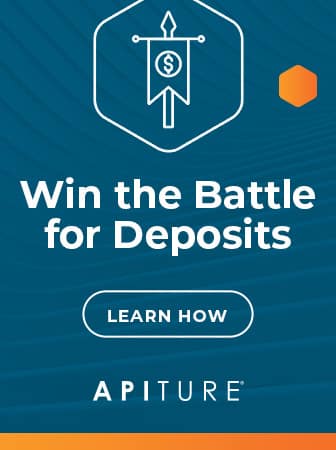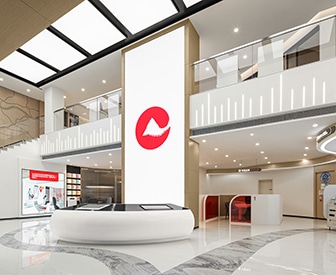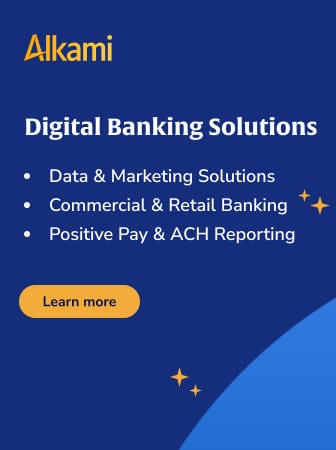In the current often-confusing economy Dave, the neobank, finds itself in a curious place.
On one hand, many of its customers need help. Many asked for higher levels of cash advances through its ExtraCash overdraft program. So the company doubled the maximum to $500 in June 2022.
Jason Wilk, founder and CEO, says this increased need is substantially the result of the nation’s high inflation rate. Dave customers, broadly, are working people living paycheck-to-paycheck. As prices rise faster than those paychecks, the need for money to tide them over emergencies and other personal spending challenges continues to grow.
On the other hand, Wilk says that with unemployment being so low, “our members don’t seem to be as affected by what feels like a white-collar kind of recession right now.”
Daily headlines have been telling a story about many tech jobs being lost — including at fintechs — especially in spaces like buy now, pay later.
“But the younger customers, the hourly workers, the shift workers, the gig workers, they have never been in higher demand,” says Wilk, “and that’s the customer base that Dave is serving today.”
Wilk says this apparently resilient base of customers looks like it is going to be a strong foundation for creation of long-term value for Dave.
That’s critical because Wilk has been telling the investment community that the company, which showed a profit in its early days, will return to profitability in 2024 —without the need for additional equity offerings.
That’s at a time when many fintechs are facing sharply reduced availability of fresh venture capital. (Dave became a public company in early 2022. The company trades on the Nasdaq under the ticker symbol DAVE.)

Banking Transformed Podcast with Jim Marous
Listen to the brightest minds in the banking and business world and get ready to embrace change, take risks and disrupt yourself and your organization.

Accelerate Time-to-Market with Rapid Implementation
Create a sustainable competitive advantage with faster time to market by drastically reducing implementation time.
Read More about Accelerate Time-to-Market with Rapid Implementation
Can Innovation Survive Economic Turmoil?
Dave built its reputation from the start as a company with innovative ideas. Wilk sees that as essential to its future and to being able to continue competing with large traditional banks, which he sees as the neobank’s prime competition. Taking customers away from large retail banks remains the key mission, the intent being to build long-term relationships that will grow into multi-product connections.
“We want to be able to continue to differentiate from the large incumbent banks through our ability to innovate,” says Wilk. Having to sweat things down, holding the line on staff, improving anti-fraud measures and more must be balanced against that. It sharpens the focus towards innovation that has a point.
“What you are going to build actually has to have some sort of contribution towards moving the business forward,” says Wilk. He says this goes beyond simply being a contributor to revenue today.
“Does it move the needle for increased customer acquisition at less cost? How does it improve things like customer retention?” posits Wilk. “You really have to make sure that what you’re going to build maps to the objectives and key metrics of the company.”
“It certainly makes it harder for new and unproven ideas,” Wilk continues. But he says innovation has been part of Dave’s culture and he wants to continue in that way.
Read More: Funding Squeeze Fallout: Will Neobanks Have to Scale Back Innovation?
Understanding the Economics of an Innovative Fintech
A recap on what Dave is about is in order. Wilk started Dave in 2017. Today, the core Dave concept is a fee-free checking account, offered through a banking as a service relationship with Evolve Bank. Second, added to this was the ExtraCash account, which provides funds that would ordinarily be delivered via overdraft service.
A key premise for Dave is that an estimated 160 million Americans either have no access to bank checking accounts or do, but frequently overdraft multiple times in a month, typically at $35 a pop. Some Dave prospects are overdrafting as much as 20 times a year for fees totaling hundreds of dollars. Over seven million people have opened Dave banking accounts.
A Different Slant on Overdraft:
The Dave idea was to offer an alternative to traditional overdraft service, which doesn't kick in until a consumer's account is exhausted. Dave permits them to request an advance beforehand.
The app, drawing on analysis of past spending patterns, actually prompts the account holder to request an advance.
Further, there is no charge for the actual short-term advance. Users are given the option to tip Dave for use of the funds, with a fee being applied for instant transfers of the money to either the Dave banking account or a linked external financial account. Funds can also be placed in a Dave debit card for a small charge. (There’s no charge for standard multi-day transfers.)
Wilk says that even with the optional tips, customers’ cost for the funds is far below $35 overdraft fees. Wilk says that most customers tip Dave something, reflecting, he says, that the relationship saves them, on average, $400 a year in bank overdraft fees.
Beyond debit card interchange income, Dave charges $1 a month subscription fee for a service that provides cash flow insights. Ancillary revenue also comes from add-ons like Side Hustle, which connects Dave customers with gig work that provides additional income.
Historically, customers often came to Dave first for ExtraCash, but in mid-2022 the company changed its approach and unified its offering. Now all new customers are enrolled simultaneously for both banking accounts and ExtraCash accounts. Among other results will be increased transactions on the Dave debit card, which drives interchange income.
Read More: Varo’s CEO on the Neobank’s Missteps & Rebuilding Strategy

Navigating Through the Pandemic and Beyond
During the pandemic, Wilk told analysts during an investor event, Dave’s biggest competitor was the federal government, handing out stimulus funds. Even with that headwind, he said, Dave grew its business by 30% in 2021. The high volume of Google searches for terms like “cash advance” and “overdraft” indicates how much interest there continues to be in what Dave provides, according to Wilk. Large retail banks with vast branch networks can’t compete with the cost structure of digital-only Dave, Wilk maintains. The company has been holding at roughly 300 employees for some time.
Demand for Advances Stays Strong:
At the end of the third quarter 2022 Dave passed a milestone of $5 billion in ExtraCash overdraft advances since its founding.
Dave customers tend to skew younger, most of them under 30. The company hopes that as those consumers mature financially that they will have more and more potential for Dave. At present, Wilk told analysts, “ExtraCash is an essential service for our members that they want to stay in good standing with.”
Read More:
- Why People Don’t Want Banks to Pull the Plug on Overdraft Services
- Overdraft Fees: Worth the Publicity Headaches and the Fines?
- How Far Could CFPB Take Its Crusade on Bank ‘Junk Fees’?

Industry Cloud for Banking from PwC
See how PwC's Industry Cloud for Banking can help solve everyday business challenges.

Improve Your Business Outcomes Through Data & Analytics
Gain centralized access to the credit bureaus and 20+ alternative data sources. Leverage advanced analytics to optimize marketing campaigns and loan decisions.
Read More about Improve Your Business Outcomes Through Data & Analytics
Dave’s Altered Business Model
Dave has throttled back on customer acquisition marketing to save money in this period. This is more doable because competitive organizations have also pulled back.
“The days of growth at all costs certainly seem to be behind us and so we’re happy that Dave has a real business model,” says Wilk. “We have to respect what the market values and we have to respect the need for conserving our cash right now, given that investors are looking for companies that can survive on their own without the need to raise more capital.”
“We would like to be able to offer a broad array of services to keep those customers for life,” says Wilk. “We may home-build some of those solutions and some may be partner solutions. We think there is a way to offer customers the full suite they can expect from a major bank, but at a digital-only institution.”
Moving into interest-bearing credit relationships in some way is very much on Dave’s radar. That is still in development and could take the form of a partnership or, potentially, lending directly from Dave’s own balance sheet.
Read More: Can Banks Beat Neobanks at Their Own Game?

Outlook for the Fintech and Neobank Segments
In the drastically changed atmosphere in financial services and the economy in general, Wilk expects to see consolidation in the provider market, resulting either in fintechs and neobanks joining forces or being acquired by traditional banking companies.
“Many fintechs built nice features that attract a lot of customers,” says Wilk. “But the way the public markets are reacting right now, and the size and scale of the fintechs, they’re so many years away from reaching the level of scale they would need to be an attractive public company.”
If capital doesn’t become easier to access again, there will be “quite a bit of consolidation over the next two to three years,” says Wilk. “Everything is on sale at 75% or more off.” Thus far most large banks have not yet started snapping up fintech players at scale.
“It will be interesting to see if anyone gets acquired over the next 12-24 months by the larger banks,” says Wilk.
That’s not the path Wilk expects to take. The existing lineup and building out more services, including credit, will dovetail with a “sticky customer base that is looking for more stuff from us.”







